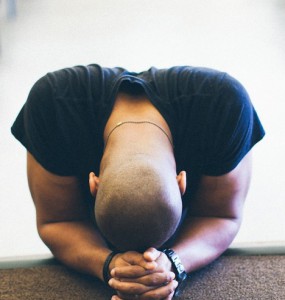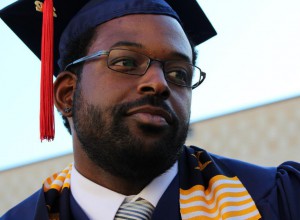 “What’s up Verdell? I know that you’ve been trying to reach me. What do you want to talk about me about?”
“What’s up Verdell? I know that you’ve been trying to reach me. What do you want to talk about me about?”
Those were the words that began a conversation that would change the trajectory of my life.
Up until that point, my intention was to take the steps toward ordination in my denomination. So much effort, time, and money was invested in this incredibly personal endeavor. Anyone who understands the experience of being “called,” as the saints would say, knows how personal it can be.
And now, right before the results of my investment were to blossom, I decided to cut the buds and walk away. There was something else about me that was also intensely personal, a reality that stuck with me as my understanding of God and myself unfolded.
I was a gay man, and this fact would not disappear into the night. My denomination did not ordain gay people.
In order to reach my goals, I would have to hide the fact that I have romantic relationships with men. For months, I prepared myself to do just that. I knew plenty of other people that were clergy while being gay, and they seemed to be doing fine. While my sexuality is personal, it is not a conversation for any church members that I would pastor. I was talented, well educated, and a decent preacher. I was ready to shut up and go forward, reaping the benefits of being an up and coming preacher while living my personal life on my own terms.
Until, that is, my conscience began to pull on me.
A few weeks before the fateful conversation with my pastor, a friend gave me some advice that led me down this road of honesty. Ready to march down the well-beaten path of black gay preachers in non-affirming denominations, I looked for someone to be a mentor, someone to show me the ropes. I found none. And what I noticed in the circles that I traveled in bothered me. It was then that a friend checked me and said, “Verdell, instead of trying to figure out how to be gay, how about you figure out how to be human?”
Those words ripped a veil away from my eyes, a veil that was woven with selfish The Christian faith is about love and justice, but talking about life and light from the dark space of a closed closet would only perpetuate death.admirations and shortsighted conclusions. The Christian faith is about love and justice, but talking about life and light from the dark space of a closed closet would only perpetuate death. My words would be weakened if I weren’t honest about my own truth. It instantly became clear to me that in order to successfully accomplish my task, I had to do it as a black gay man.
Still, this assurance didn’t help me with my pastor.“Why am I telling all of my business?” I asked myself this question before every sentence I uttered over the phone to my pastor. My usual knack for producing quality answers escaped me. I could only assure myself of several personal truths to urge myself forward during this fateful conversation.
“Why am I doing this?”
Because honesty is important, for myself and others that need to know that God loves them. Because I’m gay, and it’s dangerous to live in silence. Because…it’s what Jesus would do.
I would have to nurse and cultivate a series of fabrications in order to speak God’s truth. The massive breach of morality that would require eroded my will to pursuit it.I laid out my reasons to my pastor, who remained silent on the other end of the phone. Perhaps my stance was naïve and juvenile, but it seemed troubling to proclaim truth while maintaining a lie. That is what gnawed at me: the realization that I would have to nurse and cultivate a series of fabrications in order to speak God’s truth. The massive breach of morality that would require eroded my will to pursuit it.
I discussed my decision with a close preacher friend. “You’re making too a big deal out of this,” he told me.
“No one is going to ask you who you sleep with during your interviews.”
I asked a pointed question to prove a point. “If a member of my church saw me on an obvious date with another guy, and got back to the right people, would I lose my job?”
My preacher friend briefly paused. “Yes, you would.”
That was the final answer I needed. I didn’t want to live in the shadows anymore. I didn’t think my love was scandalous. No longer did unethical excuses masquerading as career advice suffice. “It’s your personal life. It’s no one’s business. You were called to preach; they aren’t called to know all about your life.” Bits of wisdom that sustained me now rang hollow. I wanted so many things out of my life. Secrecy was no longer one of them.
My growth didn’t lead me away from my sexuality, but toward a holistic love for myself. Because of that growth, I wanted great experiences. I wanted to experience falling in love. I wanted to connect with other people in society, since my fears about my sexuality caused me to be reclusive. I wanted to shake off the constant depression that dulled my desire for life. I thought my sexuality was reflective of some massive unworthiness, and that God wanted me to rise above my attractions.I’d suffered so long with coming to grips with my sexuality. The constant attempts to see if it could work with women, the patience and self-reflection in the hopes that whatever directed me toward men would correct itself with enough growth and prayer.
 But at the moment, I realized that the only thing God wanted me to rise above was the notion that my sexuality disqualified me from living a fulfilling life.
But at the moment, I realized that the only thing God wanted me to rise above was the notion that my sexuality disqualified me from living a fulfilling life.
I finished telling my pastor. He took a deep breath. He thanked me for being honest, and commended my bravery. I was filled with joy. The shadow that my service would be under was pierced by sincerity and courage. Whatever happens now, whatever challenges may arise, they will be the result of me daring to love myself in the sight of God. I was free to pursue my mission, telling and showing people how much God loves them, and to pursue my own happiness, which had eluded me for so long.
There’s a scripture that says, “For freedom Christ has set us free.” I believe that with every part of my being. This is why I did it.